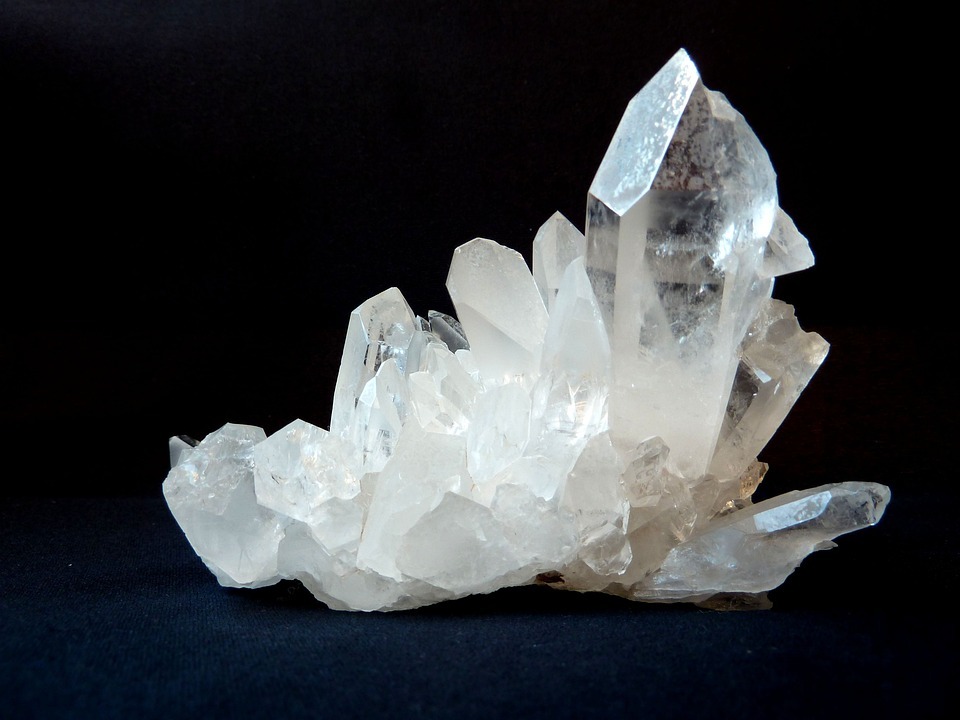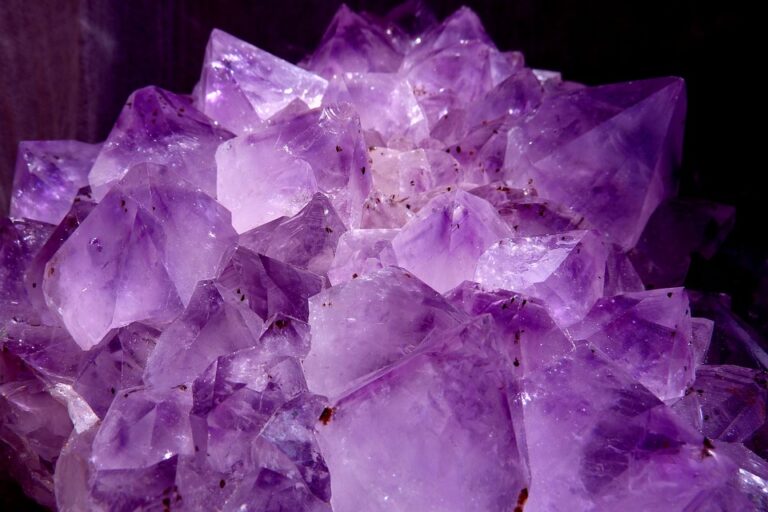Skincare is a topic that often comes with a plethora of myths and misconceptions. With so much information floating around, it can be hard to separate fact from fiction. In this article, we will debunk 50 strange skincare myths that have been circulating for years. From the bizarre to the downright ridiculous, these myths have been perpetuated for far too long. It’s time to set the record straight and get to the truth behind these skincare myths.
1. Myth: You should only wash your face once a day.
Fact: It is recommended to wash your face twice a day, in the morning and evening, to remove dirt, oil, and impurities that can accumulate throughout the day.
2. Myth: Eating chocolate causes acne.
Fact: There is no direct link between eating chocolate and acne. However, a diet high in sugar and processed foods can contribute to acne breakouts.
3. Myth: Moisturizers cause acne.
Fact: Moisturizers are designed to hydrate and nourish the skin, not cause acne. Look for non-comedogenic moisturizers that won’t clog pores.
4. Myth: Sunscreen is only necessary on sunny days.
Fact: Sunscreen should be worn daily, regardless of the weather, to protect skin from harmful UV rays that can cause premature aging and skin cancer.
5. Myth: Popping pimples makes them go away faster.
Fact: Popping pimples can actually make acne worse by spreading bacteria and causing inflammation. It’s best to leave pimples alone and let them heal naturally.
Now, let’s debunk 50 more strange skincare myths that have been circulating for years:
6. Myth: Skincare products with natural ingredients are always better for your skin.
Fact: While some natural ingredients can be beneficial for the skin, not all natural ingredients are safe or effective. It’s important to do your research and choose skincare products based on their ingredients and formulation, rather than just relying on the “natural” label.
7. Myth: You don’t need to wear sunscreen if you have dark skin.
Fact: People of all skin tones are at risk of sun damage and skin cancer. It’s essential to wear sunscreen daily, no matter your skin tone, to protect your skin from UV rays.
8. Myth: Applying toothpaste to pimples will make them disappear overnight.
Fact: While toothpaste can help dry out a pimple temporarily, it can also irritate the skin and cause redness and irritation. It’s best to use skincare products specifically designed to treat acne.
9. Myth: You should exfoliate your skin every day.
Fact: Over-exfoliating can damage the skin’s barrier and lead to irritation, redness, and sensitivity. It’s best to exfoliate 1-2 times a week, depending on your skin type.
10. Myth: Oily skin doesn’t need moisturizer.
Fact: Even oily skin needs hydration to maintain a healthy skin barrier. Look for lightweight, oil-free moisturizers that won’t clog pores.
11. Myth: Drinking more water will cure acne.
Fact: While staying hydrated is essential for overall health, drinking water alone will not cure acne. A balanced diet, proper skincare routine, and acne treatments are necessary to manage acne.
12. Myth: Your skin can become immune to skincare products.
Fact: Your skin can become tolerant to certain ingredients over time, but it doesn’t become immune to skincare products. If a product is no longer effective, it’s time to switch it up and try something new.
13. Myth: Tanning beds are a safer alternative to natural sunlight.
Fact: Tanning beds emit harmful UV rays that can damage the skin and increase the risk of skin cancer. It’s best to avoid tanning beds and opt for sunless tanning products instead.
14. Myth: You should avoid skincare products with alcohol.
Fact: Not all alcohols are bad for the skin. Some alcohols, like fatty alcohols, can actually help hydrate and soften the skin. It’s important to know the difference between good and bad alcohols in skincare products.
15. Myth: Pores can open and close.
Fact: Pores do not have muscles, so they cannot open and close. However, certain skincare ingredients like salicylic acid can help minimize the appearance of enlarged pores.
16. Myth: You should always wash your face with hot water to open pores.
Fact: Hot water can strip the skin of natural oils and cause irritation. It’s best to wash your face with lukewarm water to cleanse the skin without causing damage.
17. Myth: Toothpaste is a good spot treatment for acne.
Fact: Toothpaste contains ingredients that can be too harsh for the skin and cause irritation. It’s best to use products specifically designed to treat acne.
18. Myth: Skincare products with a higher price tag are always better.
Fact: Price does not always determine the quality or effectiveness of a skincare product. It’s important to look at the ingredients, formulation, and reviews of a product before making a purchase.
19. Myth: You should scrub your skin vigorously to exfoliate.
Fact: Gentle exfoliation is key to avoiding irritation and damage to the skin. It’s best to use a soft, circular motion when exfoliating to slough off dead skin cells without causing harm.
20. Myth: You should wash your face multiple times a day to prevent breakouts.
Fact: Over-washing the face can strip the skin of natural oils and lead to dryness and irritation. It’s best to wash your face twice a day, in the morning and evening, to maintain a healthy balance.
21. Myth: You should avoid moisturizers if you have acne-prone skin.
Fact: Moisturizers are essential for all skin types, including acne-prone skin. Look for lightweight, oil-free moisturizers that won’t clog pores and will help hydrate and nourish the skin.
22. Myth: Skincare products with artificial fragrances are safe to use.
Fact: Artificial fragrances can be irritating and sensitizing to the skin, especially for those with sensitive skin. It’s best to choose fragrance-free products to avoid potential reactions.
23. Myth: You should only wear sunscreen in the summer.
Fact: Sunscreen should be worn year-round, even on cloudy days, to protect the skin from UV rays that can cause premature aging and skin cancer.
24. Myth: You should use skincare products with collagen to prevent wrinkles.
Fact: Collagen molecules are too large to penetrate the skin and provide anti-aging benefits. Instead, look for products with ingredients like retinol and peptides that can stimulate collagen production in the skin.
25. Myth: You should avoid using oil-based products if you have oily skin.
Fact: Oil-based products can actually help balance and hydrate oily skin. Look for lightweight, non-comedogenic oils like jojoba or squalane that won’t clog pores.
26. Myth: You should use the same skincare routine morning and night.
Fact: Your skin’s needs can differ in the morning and evening, so it’s important to tailor your skincare routine accordingly. For example, using a hydrating cleanser in the morning and an exfoliating cleanser in the evening.
27. Myth: You should apply skincare products in a specific order.
Fact: While there is a general order for applying skincare products (cleanser, toner, serum, moisturizer, sunscreen), it’s more important to listen to your skin’s needs and adjust your routine accordingly.
28. Myth: You should avoid exfoliating if you have sensitive skin.
Fact: Sensitive skin can benefit from gentle exfoliation, just be sure to choose mild exfoliants like lactic acid or enzymes that won’t cause irritation.
29. Myth: You should avoid skincare products with parabens.
Fact: Parabens are safe preservatives commonly used in skincare products to prevent bacteria growth. There is no scientific evidence linking parabens to health risks.
30. Myth: You should never mix skincare products from different brands.
Fact: It’s safe to mix skincare products from different brands as long as the ingredients are compatible and won’t cause any reactions. It’s more important to focus on the formulation and efficacy of the products.
31. Myth: You should avoid wearing makeup if you have acne.
Fact: Makeup can be worn with acne as long as it’s non-comedogenic and doesn’t clog pores. Look for oil-free, water-based makeup that won’t exacerbate breakouts.
32. Myth: You should avoid skincare products with oils if you have acne-prone skin.
Fact: Oil-based products can actually benefit acne-prone skin by providing hydration and balancing oil production. Look for lightweight, non-comedogenic oils like rosehip or argan oil.
33. Myth: You should avoid using retinol during the day.
Fact: Retinol can be used during the day as long as it’s followed by sunscreen to protect the skin from UV damage. Start with a lower concentration of retinol and gradually increase as your skin builds tolerance.
34. Myth: You should only use skincare products with a high SPF.
Fact: SPF 30 is sufficient for daily sun protection, as long as it’s reapplied every 2 hours when exposed to the sun. Look for broad-spectrum sunscreen that protects against UVA and UVB rays.
35. Myth: You should avoid using skincare products with acids if you have sensitive skin.
Fact: Sensitive skin can benefit from gentle exfoliants like lactic acid or mandelic acid that won’t cause irritation. Start with a lower concentration and gradually increase as your skin builds tolerance.
36. Myth: You should avoid bar soap for cleansing the face.
Fact: Bar soap can be gentle and effective for cleansing the face, as long as it’s formulated for the face and doesn’t strip the skin of natural oils. Look for moisturizing ingredients like glycerin or shea butter.
37. Myth: You should avoid exfoliating if you have dry skin.
Fact: Dry skin can benefit from gentle exfoliation to remove dead skin cells and promote cell turnover. Look for hydrating exfoliants like lactic acid or glycolic acid that won’t strip the skin of moisture.
38. Myth: You should only use skincare products with natural ingredients.
Fact: Synthetic ingredients can be just as effective and safe as natural ingredients in skincare products. It’s more important to focus on the formulation and efficacy of the products rather than whether they are natural or synthetic.
39. Myth: You should avoid skincare products with alcohol if you have dry skin.
Fact: Not all alcohols are drying and irritating to the skin. Fatty alcohols like cetyl alcohol and stearyl alcohol can actually help hydrate and soften the skin. Look for moisturizers with hydrating alcohols to nourish dry skin.
40. Myth: You should avoid using eye creams if you already use a moisturizer.
Fact: Eye creams are specifically formulated for the delicate skin around the eyes and can provide additional hydration and anti-aging benefits. Look for eye creams with ingredients like hyaluronic acid and peptides to target concerns like dark circles and fine lines.
41. Myth: You should always double cleanse your skin.
Fact: Double cleansing is not necessary for everyone and can strip the skin of natural oils if done too frequently. It’s best to listen to your skin’s needs and adjust your cleansing routine accordingly.
42. Myth: You should avoid using facial oils if you have oily skin.
Fact: Oily skin can benefit from facial oils that help balance oil production and provide hydration. Look for lightweight, non-comedogenic oils like jojoba or squalane that won’t clog pores.
43. Myth: You should avoid using facial oils if you have acne-prone skin.
Fact: Facial oils can benefit acne-prone skin by providing hydration and balancing oil production. Look for non-comedogenic oils like tea tree oil or rosehip oil that won’t clog pores and can help heal acne.
44. Myth: You should only use anti-aging products if you have wrinkles.
Fact: Anti-aging products can benefit all skin types and ages by preventing premature aging and maintaining healthy skin. Look for ingredients like retinol, peptides, and antioxidants that can target multiple signs of aging.
45. Myth: You should avoid using moisturizer if you have oily skin.
Fact: Oily skin still needs hydration to maintain a healthy skin barrier. Look for lightweight, oil-free moisturizers that won’t clog pores and will help balance oil production.
46. Myth: You should exfoliate your skin every day to achieve smoother skin.
Fact: Over-exfoliating can damage the skin’s barrier and lead to irritation and sensitivity. It’s best to exfoliate 1-2 times a week, depending on your skin type, to achieve smoother, healthier skin.
47. Myth: You should avoid using skincare products with fragrance if you have sensitive skin.
Fact: Fragrance can be irritating and sensitizing to sensitive skin, leading to redness and inflammation. It’s best to choose fragrance-free products to avoid potential reactions.
48. Myth: You should only use skincare products with active ingredients.
Fact: While active ingredients can be beneficial for the skin, not all products need to contain them to be effective. It’s important to focus on a balanced skincare routine that meets your specific skin concerns.
49. Myth: You should avoid using skin serums if you have oily skin.
Fact: Skin serums can benefit all skin types, including oily skin, by targeting specific skin concerns like acne, hydration, and anti-aging. Look for lightweight, oil-free serums that won’t clog pores and will help balance oil production.
50. Myth: You should only use skincare products with SPF during the day.
Fact: SPF should be worn during the day to protect the skin from harmful UV rays, even if you are indoors. Look for moisturizers and makeup with SPF to ensure you are adequately protected.
Now that we have debunked 50 strange skincare myths, let’s dive into 5 tips related to skincare that will help you achieve healthy, glowing skin:
1. Customize your skincare routine to your skin type and concerns.
Everyone’s skin is unique, and what works for one person may not work for another. It’s essential to identify your skin type (dry, oily, combination, sensitive) and specific concerns (acne, aging, hyperpigmentation) to tailor your skincare routine accordingly. Consult with a dermatologist or skincare professional to determine the best products and ingredients for your skin.
2. Practice good sun protection habits.
Sun exposure is one of the leading causes of premature aging and skin cancer. It’s crucial to wear sunscreen daily, even on cloudy days, to protect your skin from harmful UV rays. Look for broad-spectrum sunscreen with SPF 30 or higher and reapply every 2 hours when exposed to the sun. Wear protective clothing, hats, and sunglasses to further shield your skin from UV damage.
3. Stay hydrated and eat a balanced diet.
Adequate hydration and nutrition are essential for healthy skin. Drink plenty of water throughout the day to keep your skin hydrated and glowing. Eat a balanced diet rich in fruits, vegetables, whole grains, and lean proteins to provide your skin with essential nutrients and antioxidants. Limit processed foods, sugar, and alcohol, which can contribute to inflammation and skin issues.
4. Practice good skincare habits daily.
Consistency is key when it comes to skincare. Establish a daily skincare routine that includes cleansing, exfoliating, moisturizing, and protecting your skin. Use gentle, non-irritating products that are suitable for your skin type and concerns. Avoid harsh ingredients, over-exfoliation, and picking at your skin, which can cause damage and irritation. Treat your skin with care and patience to achieve healthy, radiant skin.
5. Prioritize self-care and stress management.
Stress can take a toll on your skin, leading to breakouts, dullness, and aging signs. It’s important to prioritize self-care and stress management techniques to maintain your skin’s health and overall well-being. Practice relaxation techniques like meditation, deep breathing, yoga, and mindfulness to reduce stress and promote skin rejuvenation. Get enough sleep, exercise regularly, and engage in activities that bring you joy and relaxation to support your skin’s health from the inside out.
In conclusion, skincare myths have been circulating for years, and it’s time to set the record straight. By debunking 50 strange skincare myths and providing 5 tips related to skincare, you can achieve healthy, glowing skin that you deserve. Take control of your skincare routine, listen to your skin’s needs, and prioritize self-care to achieve the skin of your dreams. Remember, skincare is a journey, and with the right knowledge and practices, you can achieve radiant, healthy skin that reflects your inner beauty. So, say goodbye to skincare myths and hello to a brighter, more confident you.








